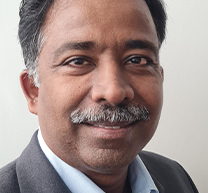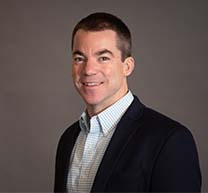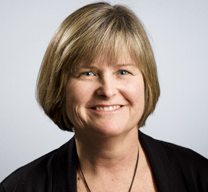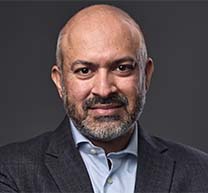GEC 出席 "负责任的企业 2024 "年会
不断发展的可持续电子产品:让供应链为下一代 EPEAT 标准做好准备
太平洋标准时间 2024 年 11 月 21 日上午 9 时至下午 12 时
近 20 年来,EPEAT 生态标签一直是技术市场的一个重要信号,它使采购商、电子产品品牌和其他利益相关者对产品的 "可持续发展 "含义有了共同的定义。经过多方利益相关者多年的努力,EPEAT 标准正在不断完善,为满足该领域日益增长的期望创造了新的基准。下一代 EPEAT 标准不仅将提高全球社会的标准,而且还需要与供应链合作伙伴进行更多的互动。
请参加全球电子理事会 (GEC) 在 2024 年负责任企业年会上举办的互动活动,了解供应链合作伙伴在可持续产品开发中的重要作用,包括总装和零部件制造商在满足 EPEAT 生态标签标准即将进行的修订中的作用。
探讨这些标准修订和供应商的具体要求,涉及四个重要领域,包括
- 负责任的供应链
- 气候
- 循环性
- 化学品
此外,我们还将深入探讨负责任企业联盟 (RBA) 和负责任矿产倡议 (RMI) 的工具和资源如何加快达到这些标准。作为参与者,您将能够深入了解旨在帮助贵公司和供应商实现 "EPEAT Ready "的资源、计划和咨询服务。请不要错过这个 3 小时的合作伙伴活动 - 出席者可免费获得茶点!
特邀发言人

Balan Shanmuganathan

卡西-格鲁伯

Christy Jung
惠普首席项目经理

鲍勃-米切尔
全球电子理事会首席执行官

帕特里夏-狄龙
全球电子理事会标准与类别发展副总裁

考希克-拉马克里希南
全球电子理事会全球市场开发与战略副总裁
活动议程
2024 年 11 月 21 日 - 以下时间均为当地太平洋标准时间
上午 9:00 - 10:00 - EPEAT 的下一阶段:GEC 的可持续影响目标和更新的 EPEAT 标准
与 GEC 领导人一起分享 EPEAT 生态标签如何通过实施新一代 EPEAT 标准来扩大材料可持续性主题的覆盖范围并加强供应链的参与度。会议将全面介绍新修订的标准,重点关注负责任的供应链、减少气候影响、化学品安全和循环产品设计方面的重要进展。随后将进行炉边谈话,深入探讨这些不断发展的标准将如何塑造可持续电子产品的未来,并推动整个行业发生可衡量的变化。
上午 10:00 - 11:00 - 供应链视角:深入了解 EPEAT 的修订标准
在本环节中,我们将从供应商的角度探讨更新后的 EPEAT 标准。我们将探讨更新标准的复杂性,就这些变化如何影响供应链的每个阶段提供实用见解。在第二场炉边谈话中,行业专家将深入探讨这些标准给零部件制造带来的挑战和机遇,帮助与会者全面了解 EPEAT 对供应商的影响。
上午 11:00 - 11:30 - GEC 供应商参与:加速供应链就绪的资源和计划
掌握 GEC 提供的工具和资源,帮助供应商满足修订后的 EPEAT 标准。本次会议将概述即将推出的资源、计划和咨询服务,以创建 "EPEAT Ready "供应链。随后,我们将进行最后的 "炉边谈话",提供关于供应商参与的坦诚见解,强调促进合作和推动有意义结果的方法。
上午 11:30 - 下午 12:00 - 与 GEC 的圆桌会议
作为一个开放论坛,本次会议为与会者提供了专门的办公时间,与会者可以与 GEC 工作人员进行一对一的会谈,以解决前几次会议中提出的具体问题。无论您是需要对标准、供应商资源进行澄清,还是需要对即将到来的标准变化进行指导,本次开放论坛都将为您提供所需的个性化支持,帮助您满怀信心地驾驭下一代 EPEAT 标准。
关于全球电子理事会的更多信息
GEC 致力于加快系统性变革,到 2050 年实现电子行业 100% 可持续发展。这意味着在产品和服务的整个生命周期内,实现净零排放、零废弃物、中和水资源,并将对环境和人权的不利影响降至最低。
作为 EPEAT 生态标签的管理者,我们为可持续电子产品制定了全球标准。我们通过世界领先的认证、宣传和领导力,帮助电子产品制造商和买家实现可持续发展目标。我们正在重塑世界与技术和自然资源之间的关系,使电子产品从一个不断升级的环境和社会挑战转变为一个有能力、可持续的解决方案。
关于负责任企业联盟的更多信息
责任企业联盟是全球最大的行业联盟,致力于在全球供应链中推行负责任的商业行为。
责任企业联盟(RBA)(前身为电子行业公民联盟(EICC))成立于 2004 年,是一个由电子、零售、汽车和玩具公司组成的非营利组织,致力于支持受全球供应链影响的全球工人和社区的权利和福祉。RBA 成员承诺遵守共同的《行为准则》并对其负责,同时利用一系列 RBA 培训和评估工具,支持不断改进其供应链的社会、环境和道德责任。除 RBA 会员外,会员的数千家一级供应商也必须执行 RBA 行为准则。请访问https://www.responsiblebusiness.org/about/rba/了解更多信息。

帕特里夏-狄龙
全球电子理事会标准与类别发展副总裁
Patty 负责监督 GEC 新的和现有的 EPEAT 产品类别以及其他 GEC 计划的标准制定流程、战略和团队。她领导着将 GEC 标准制定流程转变为更高效、敏捷、科学驱动的流程的倡议,该流程吸引了广泛、多样的利益相关者和专家的参与。她的团队负责对新产品类别进行持续监控和开发,就电子产品的可持续性影响和减轻影响的策略编写可持续性状况研究报告,管理建立和维护可持续性标准的多方利益相关者流程,以便在 EPEAT 注册表上实施,并开发 GEC 电子产品环境效益计算器。她于2016年加入GEC,对基于共识的标准制定有着深刻的理解,并长期与EPEAT合作。自 EPEAT 成立以来,她一直参与构成 EPEAT 基础的标准制定工作,先是作为利益相关者受邀参与制定最初的计算机标准,随后又担任电视、服务器和光伏标准的领导职务。
Patty 在标准制定、环境政策和商业战略方面拥有三十多年的研究、促进和项目管理经验,在电子、塑料和包装领域有广泛的工作经验。在加入 GEC 之前,Patty 曾担任独立顾问、东北部回收利用委员会(Northeast Recycling Council)兼职项目经理(负责管理州电子产品挑战赛(State Electronics Challenge)和包装有毒物质信息交换中心)以及塔夫茨大学(Tufts University)研究助理。Patty 拥有塔夫茨大学土木工程硕士学位(环境工程专业)和塔夫茨大学生物学学士学位。

鲍勃-米切尔
全球电子理事会首席执行官
作为全球电子理事会的首席执行官,鲍勃负责领导和战略监督该组织,以实现其愿景和使命。他在商业与人权、环境可持续发展、非营利组织管理以及企业可持续发展与计划方面拥有深厚的背景。
作为负责任企业联盟 (Responsible Business Alliance, RBA) 负责人权与环境事务的前副总裁,鲍勃领导了多行业、多利益相关方环境下负责任商业行为计划的战略制定与实施。在担任该职务期间,他推动了强迫劳动尽职调查、供应链去碳化、循环性和供应链复原力等领域重要工作的启动和实施。
他是惠普公司和惠普企业的资深员工,在可持续发展领域工作了十多年。在加入 RBA 之前,他曾担任惠普企业全球社会与环境责任总监,领导一个专业团队处理人权、产品环境管理、供应链责任和冲突矿产等问题。鲍勃还曾担任 RBA 董事会成员和社会责任国际(SAI)顾问委员会成员。他拥有亚利桑那大学工商管理硕士学位和弗吉尼亚大学学士学位。

考希克-拉马克里希南
全球电子理事会全球市场开发与战略副总裁
作为战略增长高级总监,Kaushik Ramakrishnan 负责推动 GEC 的长期影响和增长战略。作为高级领导团队的成员,他与首席执行官和 GEC 领导层密切合作,在全球范围内构思、孵化和实现高增长机会,以实现组织的使命和愿景。
考什克在四大洲的私营部门、初创企业和非营利组织拥有 20 多年的工作经验。他是一名可持续发展专家,在企业可持续发展战略、可持续供应链和气候融资方面有广泛的工作经验。在加入 GEC 之前,Kaushik 曾在 Sustainalytics、雨林联盟、IDH - 可持续贸易倡议组织、爱立信、Infosys 和 Pula Advisors 担任领导职务。
考希克拥有海德拉巴印度商学院工商管理硕士学位和维斯瓦拉亚技术大学计算机科学工程学士学位。他目前居住在比利时根特。

Balan Shanmuganathan
希捷科技可持续发展高级工程总监
Balan Shanmuganathan 是希捷科技可持续发展高级工程总监。他在环境健康与安全以及可持续发展方面拥有 30 多年的经验。 目前,Balan 在希捷负责公司的整体可持续发展计划。 在过去 5 年中,他一直致力于希捷的循环工作,与客户、回收商、供应链合作伙伴和认证机构合作,推进希捷的循环工作。

卡西-格鲁伯
捷普可持续发展业务解决方案总监
Cassie Gruber 与全球客户和细分市场密切合作,制定捷普的循环经济战略。作为电子回收和可持续发展行业的杰出领导者,Cassie 于 2018 年加入捷普,作为循环经济领域的主题专家发展绿色创新技术。她通过产品和材料再利用和再循环的整个逆向供应链,支持捷普各行业客户的回收和循环经济目标和举措。
在学习了十年艺术和哲学之后,Cassie 的职业道路发生了重大转变,她成为了纽约布法罗一家小型电子垃圾公司的合伙人。之后,Cassie 在电子产品回收行业工作了二十年,专注于环境的可持续发展和合规性。凭借丰富的经验和对可持续发展的执着,Cassie 帮助捷普向数据驱动的循环价值供应链发展。

Christy Jung
惠普首席项目经理
ChristyJung 是惠普公司的首席项目经理,专门负责产品合规性和可持续发展。她在推动生态标签战略、可持续发展计划和法规遵从方面拥有深厚背景,领导着一个跨地区团队,专注于推进可持续产品开发,并与供应商一起推动脱碳解决方案。她代表惠普担任 EPEAT 技术委员会资源可持续利用模块的投票成员。Christy拥有亚利桑那州立大学供应链管理学士学位,并正在攻读约翰霍普金斯大学能源政策与气候专业的硕士学位。

